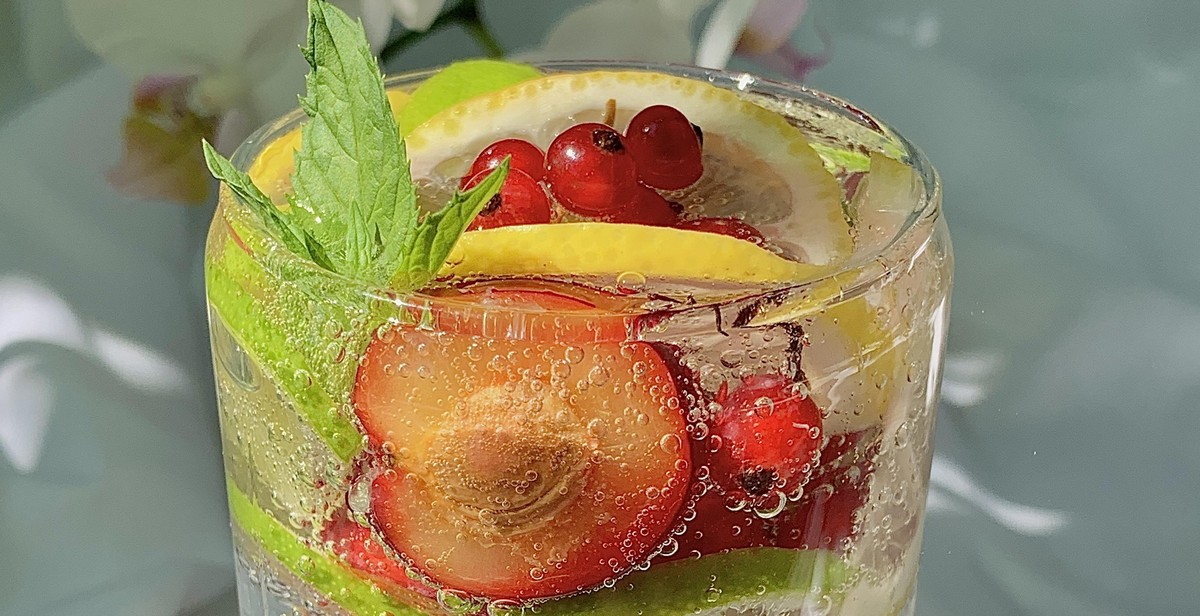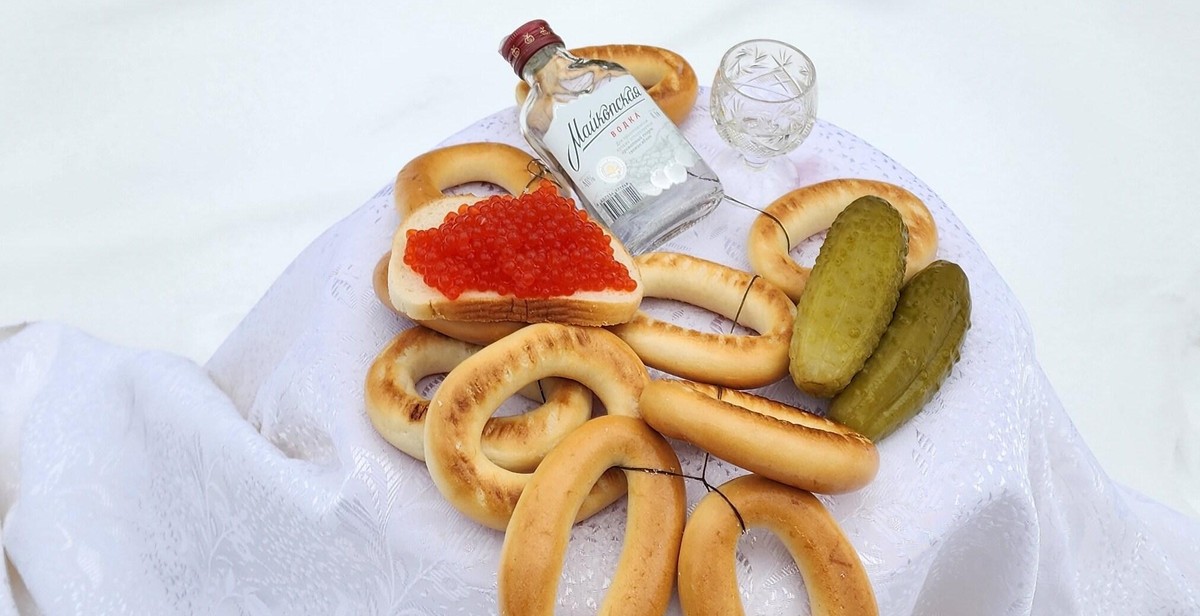Introduction
Vodka is a popular alcoholic beverage that has been around for centuries. It is a clear and colorless spirit that is made from grains or potatoes and has a high alcohol content. Vodka is a versatile drink that can be enjoyed on its own, mixed in cocktails, or used as a base for other alcoholic beverages.
There are many different types of vodka available on the market, each with its own unique characteristics and flavor profiles. Some vodkas are smooth and creamy, while others are sharp and fiery. Some vodkas are distilled multiple times, while others are only distilled once.
What is Vodka?
Vodka is a distilled spirit that is made from grains or potatoes. It is a clear and colorless liquid that typically has an alcohol content of around 40%. The exact ingredients used to make vodka can vary, but most vodkas are made from wheat, rye, corn, or potatoes.
Vodka is typically distilled multiple times to remove impurities and create a smooth, clean taste. Some vodkas are distilled up to eight times, while others are only distilled once. The number of times a vodka is distilled can have a significant impact on its flavor profile and overall quality.
Why Appreciate and Identify Different Types of Vodka?
Appreciating and identifying different types of vodka can help you develop a deeper appreciation for this versatile spirit. By understanding the different flavor profiles and characteristics of different types of vodka, you can make more informed decisions when choosing a vodka to drink or use in a cocktail.
Whether you are a casual drinker or a seasoned mixologist, learning how to appreciate and identify different types of vodka can take your drinking experience to the next level.
The History of Vodka
Vodka is a clear, colorless, and odorless distilled spirit that is made from grains, potatoes, or sometimes fruits. It is one of the most popular alcoholic beverages in the world, and its history can be traced back to the 14th century.
The Origins of Vodka
The exact origins of vodka are unclear, but it is believed to have originated in either Russia or Poland. The word “vodka” comes from the Slavic word “voda,” which means water. In the early days, vodka was used for medicinal purposes and was believed to have healing properties.
Vodka in Russia
Russia is often considered to be the birthplace of vodka. It was first produced in Russia in the 14th century and was made from grains such as rye, wheat, and barley. Vodka became a popular drink among the Russian nobility, and by the 16th century, it was being produced on a large scale.
In the 18th century, the Russian government took over the production of vodka and established a state monopoly. This led to the creation of the famous Russian vodka brand, Smirnoff. Today, Russia is still one of the largest producers and consumers of vodka in the world.
Vodka in Poland
Poland also has a long history of vodka production. The first Polish vodka was produced in the 16th century and was made from potatoes. However, it was not until the 19th century that the production of vodka became widespread in Poland.
One of the most famous Polish vodka brands is Belvedere, which was founded in 1993. Today, Poland is one of the largest producers of vodka in the world, and Polish vodka is known for its high quality and smooth taste.
Vodka in the United States
Vodka did not become popular in the United States until the mid-20th century. In 1934, the Smirnoff brand was introduced to the American market, but it did not become popular until the 1950s. This was due in part to a successful marketing campaign that positioned vodka as a sophisticated and refined drink.
Today, there are many American vodka brands, including Grey Goose, Tito’s, and Absolut. While vodka is not as popular in the United States as it is in Russia and Poland, it is still a popular spirit and is often used in cocktails and mixed drinks.
What Makes Vodka Different?
Vodka is one of the most popular alcoholic beverages in the world, and it’s easy to see why. It’s versatile, mixable, and can be enjoyed in a variety of ways. But what makes vodka different from other types of alcohol?
Ingredients
Vodka can be made from a variety of ingredients, including grains like wheat, rye, and barley, as well as potatoes, corn, and even grapes. The type of ingredient used can affect the flavor and texture of the vodka. For example, wheat-based vodka tends to be smoother and creamier, while potato-based vodka has a more earthy flavor.
Distillation
Distillation is the process of purifying the alcohol by heating it and then cooling it to collect the vapor. Vodka is typically distilled multiple times to remove any impurities and achieve a high level of purity. The number of times it’s distilled can also affect the flavor of the vodka. Vodka that’s been distilled more times tends to be smoother and more neutral in flavor.
Filtration
After distillation, vodka is usually filtered to remove any remaining impurities. This can be done using a variety of methods, including charcoal filtration, which is a common method used to create a smooth and clean-tasting vodka. Some vodkas are also filtered through precious metals like gold or silver, which can add a unique flavor and texture to the vodka.
Overall, the ingredients, distillation, and filtration methods used can all affect the flavor and texture of the vodka. By understanding these differences, you can better appreciate and identify the various types of vodka available.

Types of Vodka
Vodka is a popular and versatile spirit that can be enjoyed on its own or used in cocktails. Below are the different types of vodka:
Traditional Vodka
Traditional vodka is made from grains such as wheat, rye, or barley. It is usually distilled multiple times to achieve a smooth and clean taste. This type of vodka is often unflavored and colorless. It is the most common type of vodka and is used in many classic cocktails such as the Martini and the Bloody Mary.
Flavored Vodka
Flavored vodka is made by adding natural or artificial flavors to traditional vodka. The most common flavors are fruit, such as raspberry or citrus, but there are also savory flavors like bacon or dill pickle. Flavored vodka is often used in cocktails to add an extra layer of flavor.
Premium Vodka
Premium vodka is made from high-quality ingredients and is often distilled more times than traditional vodka. It is also usually filtered multiple times to create a smooth and refined taste. Premium vodka is often more expensive than traditional vodka and is enjoyed neat or on the rocks.
Craft Vodka
Craft vodka is made by smaller, independent distilleries using unique and often local ingredients. It is often distilled in small batches and is not mass-produced. Craft vodka can have a wide range of flavors and is often enjoyed by vodka enthusiasts who appreciate the artistry and uniqueness of each batch.
| Type of Vodka | Main Ingredient | Distillation | Flavoring | Price |
|---|---|---|---|---|
| Traditional Vodka | Grains | Multiple times | Unflavored or natural | Affordable |
| Flavored Vodka | Grains | Multiple times | Natural or artificial | Affordable to mid-range |
| Premium Vodka | High-quality grains | More than traditional vodka | Unflavored or natural | Mid-range to expensive |
| Craft Vodka | Unique and often local ingredients | Small batches | Wide range of flavors | Mid-range to expensive |

How to Appreciate Vodka
Vodka is a versatile and popular spirit that can be enjoyed on its own or mixed into a cocktail. Here are some tips for appreciating and enjoying vodka:
Tasting Vodka
When tasting vodka, it’s important to use a clean and neutral palate. This means avoiding strong flavors like coffee or spicy foods before tasting. Start by pouring a small amount of vodka into a glass and swirling it around to release its aroma. Take a deep breath and try to identify any notes of vanilla, citrus, or grain. Then, take a small sip and let it sit on your tongue for a few seconds before swallowing. Pay attention to the texture and mouthfeel, as well as any flavors that come through.
Some people prefer to taste vodka at room temperature, while others prefer it chilled. Experiment with different temperatures to find what works best for you.
Pairing Vodka with Food
Vodka’s neutral flavor profile makes it a great spirit to pair with a variety of foods. Here are some classic pairings:
- Smoked salmon: The smooth texture of vodka pairs well with the richness of smoked salmon.
- Caviar: Vodka’s clean taste and smooth texture complement the saltiness of caviar.
- Pickles: The briny flavor of pickles is a classic accompaniment to vodka shots.
- Spicy foods: Vodka’s neutral flavor profile can help cool down the heat of spicy foods.
- Chocolate: The smoothness of vodka complements the richness of chocolate.
Experiment with different food pairings to find what works best for your taste preferences.
Conclusion
Appreciating and enjoying vodka is all about exploring its unique flavor profile and finding ways to pair it with different foods. Whether you prefer it on its own or mixed into a cocktail, vodka is a versatile spirit that can be enjoyed in many different ways.
Conclusion
Vodka is a versatile and popular alcoholic beverage that is enjoyed around the world. Understanding the different types of vodka available can help you appreciate and enjoy it even more. From traditional Russian vodka to flavored varieties, there is a vodka to suit every taste.
Tips for Identifying Quality Vodka
When shopping for vodka, it is important to choose a high-quality product to ensure the best taste and drinking experience. Look for vodka that is:
- Distilled multiple times
- Made from high-quality ingredients
- Filtered through charcoal or other materials
- Bottled at a high proof
By following these guidelines, you can be sure that you are purchasing a quality vodka that will be enjoyable to drink.
Final Thoughts
Whether you prefer your vodka straight or mixed into a cocktail, taking the time to appreciate and identify different types of vodka can enhance your drinking experience. With its unique flavor and versatility, vodka is a timeless classic that is sure to remain popular for years to come.
So go ahead, pour yourself a glass of your favorite vodka and savor the taste!
